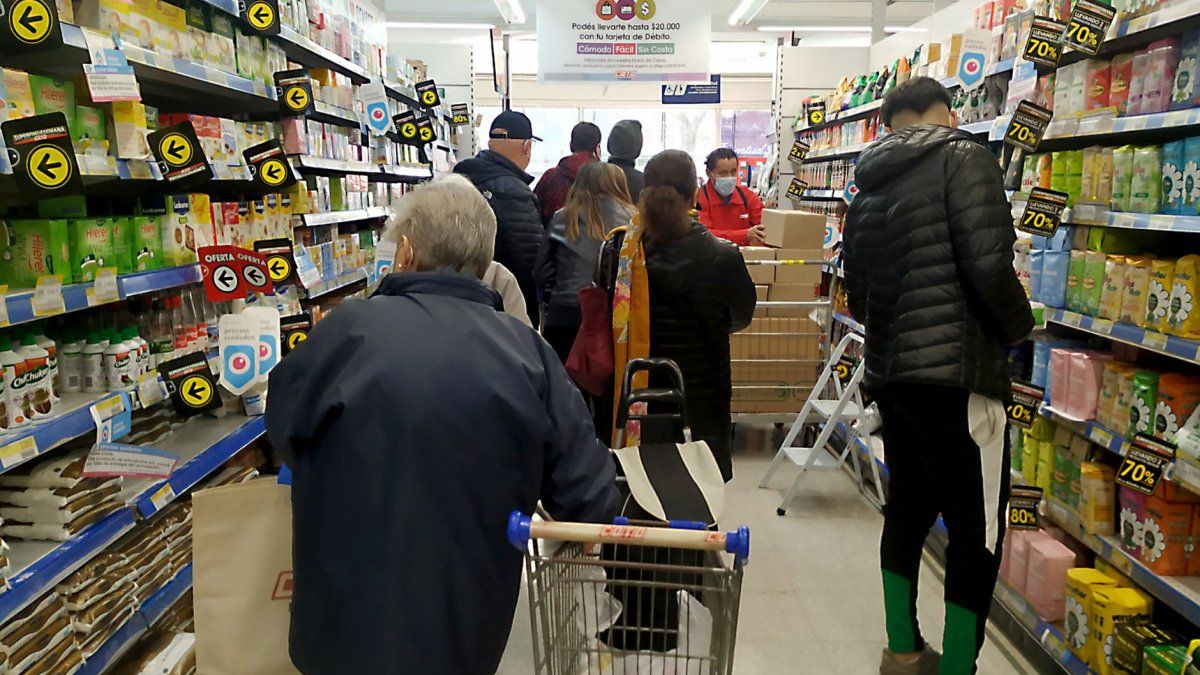The main reason for this scenario is, logically, the rise in prices. “Undoubtedly, in inflationary scenarios like the one we are experiencing, this hits the consumer’s pocket squarely and consumption contracts. That is the concern we have”, Palpacelli remarked to Ámbito.
Precisely, when referring to price increases, the head of FASA stressed that September “was a month similar to August.” “We had price changes in all categories, practically all companies passed price changes. As for the percentage of increases, a slight slowdown was seen. The products that were contained under the flour, oil and noodle trusts stood out with increases above the average. These products and their derivatives caused food to rise significantly, as they were left out of the trust. We understand that the Secretary of Commerce is working to reconstitute them”, he underlined.
This decrease in mass consumption had already been perceived in August. Is that according to the survey carried out by the consulting firm Focus Market, there was a contraction of 7.3% year-on-year, to accumulate a contraction of 2.6% in the first eight months of the year.
Food rose sharply in September
During the past month, food and beverages increased strongly again. And they were located, according to private surveys, above general inflation. “In September, Food products show an increase of 7.6%, above the general indicator of price variation, which is 6.8% for the same period”said Damián Di Pace, director of Focus Market, who explained: “The most important increases are observed in Meats, fruits and vegetables and for the mass consumption basket, in Cleaning items.”
For its part, according to the survey of the C&T consultancy, Food and beverages, the “most relevant” item, rose 7% in September. “In its interior there were generalized increases, but oils, vegetables and non-alcoholic beverages stood out. Meat accelerated significantly in the second half of the month”, they assured from the signature.
These increases hit squarely on the purchasing power of consumers. Something that was reflected in the Index of Workers’ Standard of Living (INVT) prepared by the Fundación Libertad y Progreso, which in July it registered a deterioration of 1.9%.
“The INVT measures the evolution of the purchasing power of private wages (registered and unregistered) in terms of access to the Total Basic Basket reported by INDEC, which in turn is used to measure the poverty line in Argentina. If the indicator drops, it means that they are getting closer to being poor and that more of them are. The opposite happens when the index shows a rise”, they pointed out from the firm.
Eugenio Marí, Chief Economist of the Fundación Libertad y Progreso, pointed out in this regard: “The acceleration of inflation in 2022 hit hard the purchasing power of wages, especially in terms of access to the basic basket. Hence, we are seeing a generalized process of reopening parity”.
Source: Ambito
David William is a talented author who has made a name for himself in the world of writing. He is a professional author who writes on a wide range of topics, from general interest to opinion news. David is currently working as a writer at 24 hours worlds where he brings his unique perspective and in-depth research to his articles, making them both informative and engaging.




